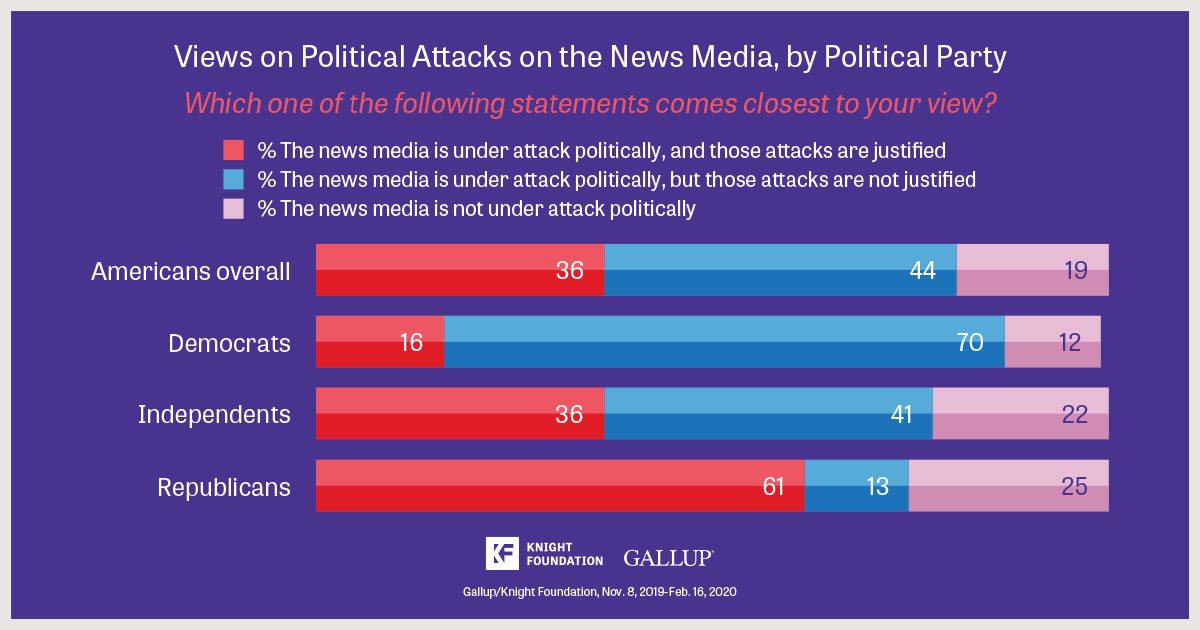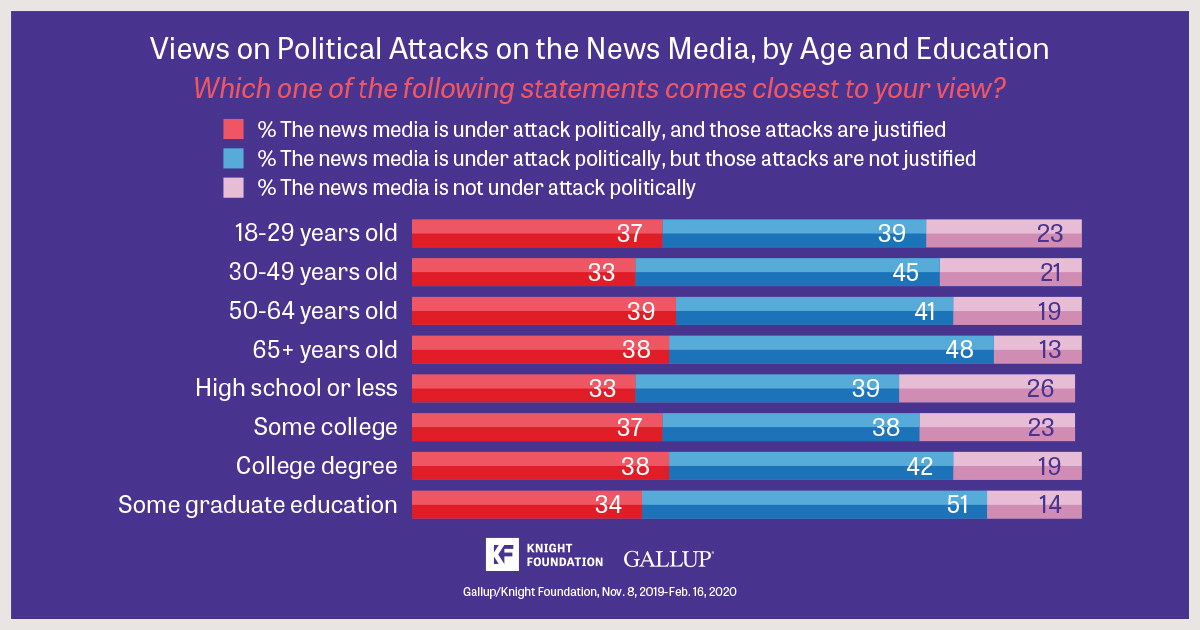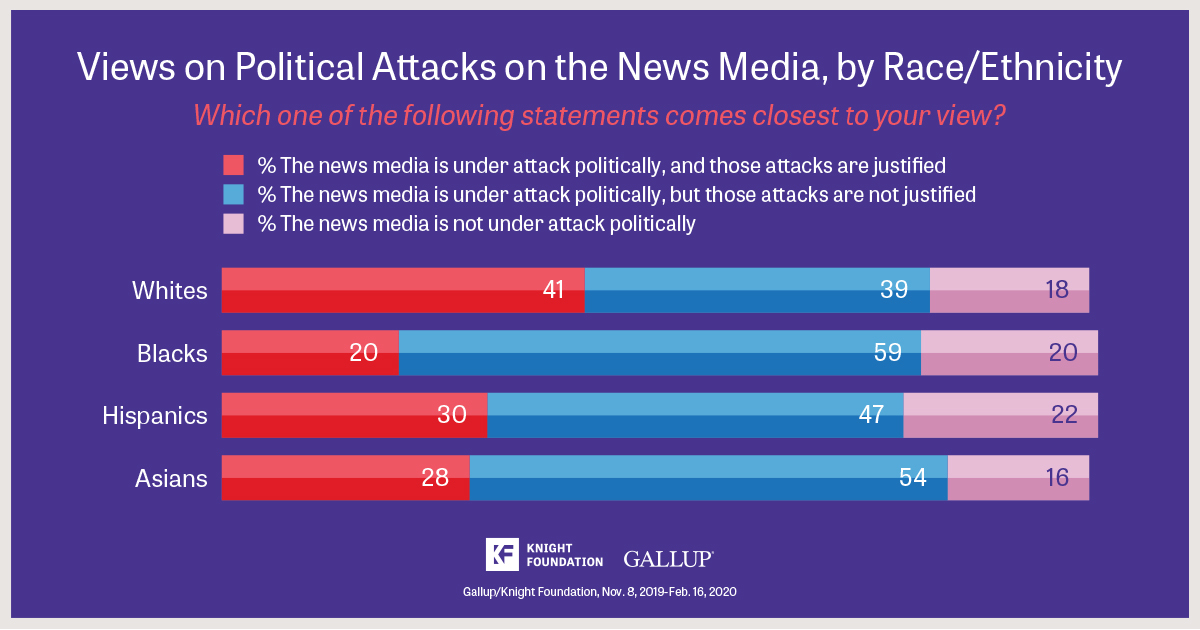Are news media attacks justified?
Study finds Republicans say yes, Democrats say no
Many Chronicle readers tell us biased reporting in daily newspapers and on TV is disappointing.
Some express even stronger views about what they call "fake news" …
This item is available in full to subscribers.
Subscribe to continue reading. Already a subscriber? Sign in
Get 50% of all subscriptions for a limited time. Subscribe today.
Please log in to continueNeed an account?
|
Are news media attacks justified?
Study finds Republicans say yes, Democrats say no
Many Chronicle readers tell us biased reporting in daily newspapers and on TV is disappointing.
Some express even stronger views about what they call "fake news" and "liberal political bias."
They are most critical of large city daily newspapers, CNN, MSNBC and the 3 news networks.
We realize that most of those who say this are conservative thinkers and voters.
They give the Chronicle high marks for fairness and accuracy.
In a new Gallup/Knight Foundation survey, 80% of Americans contacted agree the news media is under attack politically.
They disagree by party, however, on whether those attacks are justified.

Younger and less educated Americans are most likely to say the media is not under attack.
Americans aged 65 and older (13%) are about half as likely as those aged 18-29 (23%) to say the media is not under attack.
Similarly, Americans with some postgraduate education (14%) are less likely than those with a high school education or less (26%) to say the media is not under attack

Political Party and Race Distinguish Views on the Merit of Media Attacks
Those who agree the news media is under attack politically divide along party lines on the merit of those attacks.
44% of Americans — including 70% of Democrats — say the media attacks are not justified;
41% of independents and 13% of Republicans hold this view.
Conversely, 36% say the attacks on the media are justified.
These include 16% of Democrats, 36% of independents and 61% of Republicans.
Major differences in whether attacks on the media are justified also appear by race/ethnicity.
Whites (41%) are more than twice as likely as Blacks (20%) to say the attacks on the news media are justified.

Political polarization deepens on how well the news media uphold their societal responsibilities.
Americans are becoming more vocal in their criticism of the news media.
Republicans express more negative opinions on the news media compared to Democrats.
Yet a rare partisan ggreement exists on the idea that the news media is under attack.
The U. Press Freedom Tracker has documented 133 physical attacks on media members in 2020, up from 34 in 2019.
Democrats appear more concerned with those who are attacking the news media and its adverse impacts on journalists and our democracy.
Republicans tend to believe the problem lies with the media itself.
Partisans also diverge on whether those attacks are justified.
This divergence echoes Republicans’ more negative assessments of how well the news media favors American democracy over Marxism.
Gallup/Knight research shows Americans believe the news media can play a positive role by reporting verifiable facts and addressing concerns about partisan spin.
Read the full report at kf.org/usviews20.
Survey Methods
Results are based on mail surveys collected Nov. 8, 2019-Feb. 16, 2020, from a random sample of 20,046 U.S. adults, aged 18 and older, living in all 50 states and the District of Columbia. For results based on this sample of U.S. adults, the margin of sampling error is ±1 percentage point at the 95% confidence level.
Gallup obtained a randomly selected, address-based sample of U.S. households for this study from Dynata. Respondents were chosen at random within each household on the basis of which member had the next birthday. The study also included oversamples of households known to include young, Hispanic or Black adults. Households known to have a young adult were randomly assigned to have the survey taken either by the youngest adult member of the household or by the adult with the next birthday. The oversample data are combined with the national sample data and weighted to be representative of the U.S. adult population.
Samples are weighted to correct for unequal selection probability and nonresponse.
Keywords
news, media, attacks, Republicans, DemocratsOther items that may interest you







Comments
No comments on this item Please log in to comment by clicking here